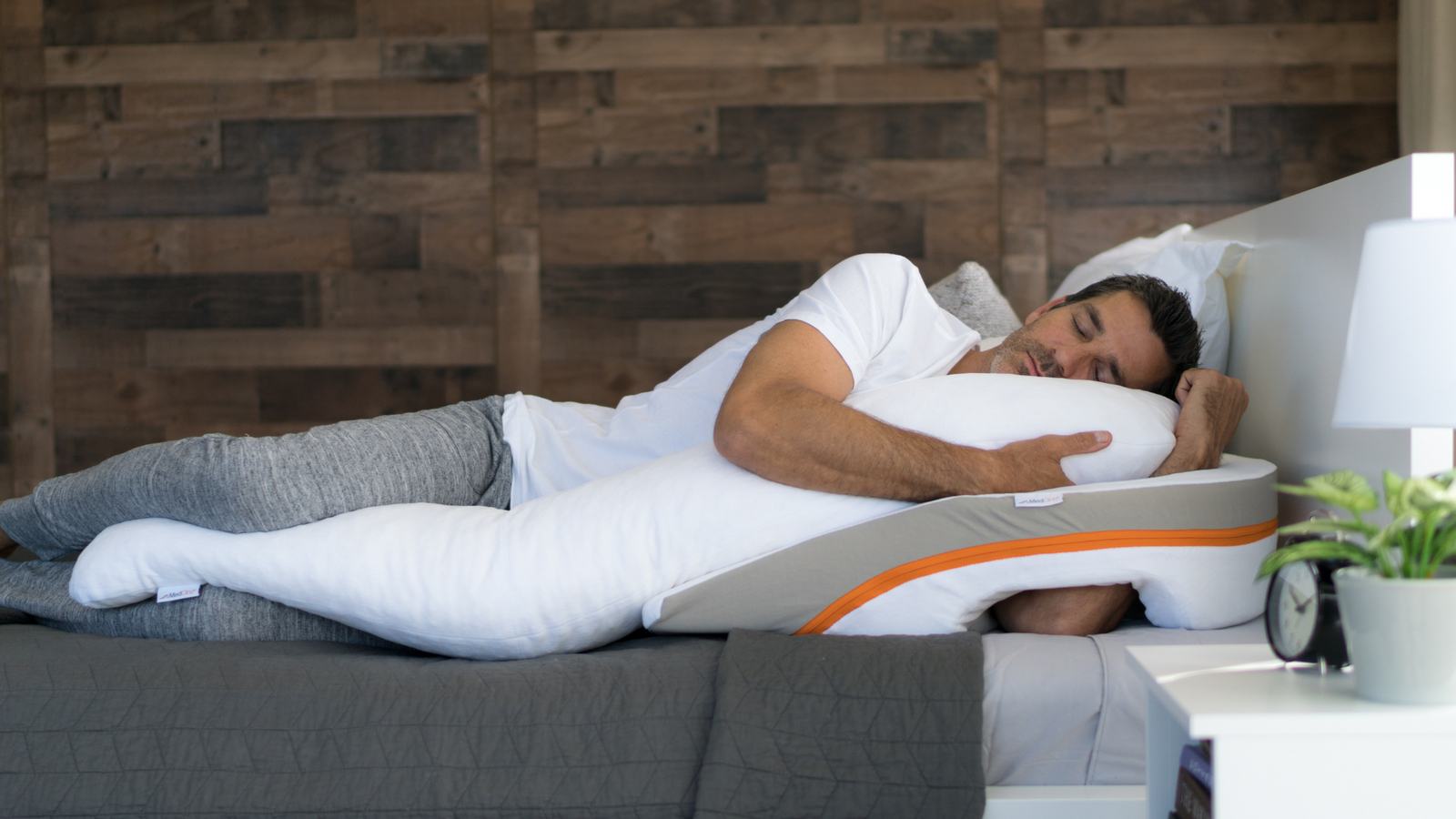Your Cart is Empty
Buy now, pay later or in 3 with Klarna
Get free shipping by subscribing to newsletter!
Fast shipping from our warehouse in the UK!
Buy now, pay later or in 3 with Klarna
Get free shipping by subscribing to newsletter!
Fast shipping from our warehouse in the UK!

What is positional therapy?
A good quality sleep is essential for our overall well-being, but for many people, certain medical conditions can disrupt their rest. Fortunately, positional therapy during sleep offers a natural approach to alleviate symptoms of sleep apnea, acid reflux, and gastro-oesophageal reflux disease (GORD).
- What is positional therapy?
- Benefits of positional therapy on sleep apnea
- Benefits of positional therapy on acid reflux
- Applying positional therapy with MedCline
- Wrapping up
What is positional therapy?
Positional therapy during sleep is an approach used to treat certain sleep issues such as sleep apnea, snoring, acid reflux, heartburn, and gastro-oesophageal reflux disease (GORD). It aims to maintain a specific sleeping position to promote optimal breathing and reduce symptoms associated with these disorders.
Therefore, positional therapy aims to encourage the sleeper to avoid the back sleeping position as it can worsen symptoms of sleep apnea or reflux.
Benefits of positional therapy on sleep apnea
Sleep apnea is a common disorder characterized by temporary pauses in breathing during sleep. This occurs when the muscles in the throat relax and partially or completely block the airways. One of the common causes of this problem is sleep position, particularly sleeping on the back.

Positional therapy offers several potential benefits for individuals with sleep apnea and snoring, especially those related to the sleeping position. Here are some of the advantages associated with this approach:
-
Decrease sleep apnea symtpoms
One of the key benefits of positional therapy is decreasing sleep apnea episodes. By avoiding sleeping on the back, which is often associated with airway narrowing, it is possible to improve airflow during sleep and decrease respiratory pauses.
-
Decrease snoring
The back sleeping position promotes snoring by partially obstructing the airways. Positional therapy helps prevent rolling onto the back, significantly reducing snoring.
-
Decrease daytime sleepiness
Untreated sleep apnea can lead to excessive daytime sleepiness due to poor sleep quality. By improving breathing during sleep, positional therapy can help reduce daytime sleepiness and enhance overall quality of life.
-
Avoidance of other more invasive treatments
For some people, positional therapy can serve as an alternative to more invasive treatments such as continuous positive airway pressure (CPAP) devices or surgical intervention. It can provide a non-medication and less burdensome solution.
-
Easy to use
Compared to other treatments, positional therapy is relatively simple to implement. It involves finding effective means to maintain a side sleeping position during sleep, such as using specific pillows.

Benefits of positional therapy on acid reflux
People with acid reflux or gastro-oesophageal reflux disease (GORD) commonly experience heartburn and nocturnal reflux. Sleeping on the back is contraindicated for gastric reflux. Positional therapy, by maintaining an inclined position on the side (left side), can help prevent reflux by keeping gastric contents in the stomach. It helps reduce unpleasant symptoms such as heartburn, nighttime coughing, and chest pain.

Applying positional therapy with MedCline
At MedCline, we have designed the Reflux Relief System, which reduces oesophageal exposure to harmful gastric acids by 87% compared to a standard wedge pillow. Its patented design allows for a gradual incline of the upper torso at an angle of 15° to 20°, with an arm pocket to eliminate shoulder pressure when sleeping on the side, all while providing optimal comfort with its shredded memory foam gel-infused padding. It is the most effective natural solution in relieving nighttime symptoms of acid reflux.

Moreover, the incline induced by the MedCline Reflux Relief System also helps relieve symptoms of sleep apnea and snoring. In fact, to alleviate or even eliminate (when condition is less severe) these conditions, it is recommended to sleep on the side with an elevated torso, as facilitated by the MedCline device.
You can find clinically proven results of our devices on our website : https://medcline.co.uk/pages/results
Wrapping up
Positional therapy during sleep is a 100% natural treatment that provides significant relief to individuals suffering from sleep apnea, acid reflux, and GORD. By promoting better breathing and reducing episodes of reflux, it contributes to improving sleep quality and overall quality of life. If you suffer from any of these conditions, consult a healthcare professional to discuss the opportunity of adopting positional therapy and other treatment options that best suit your needs.



